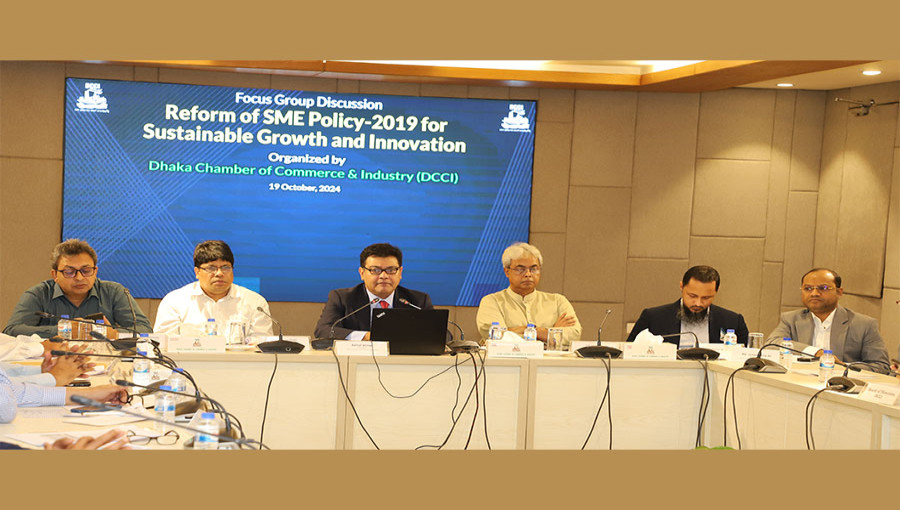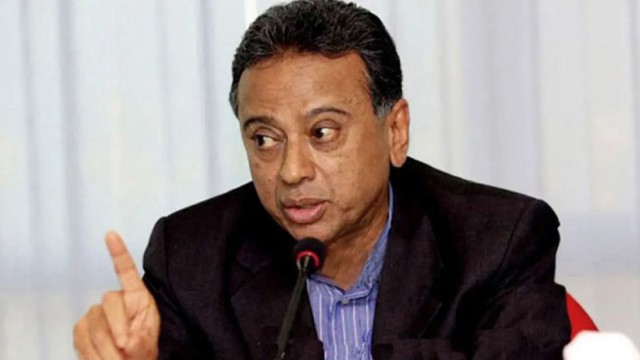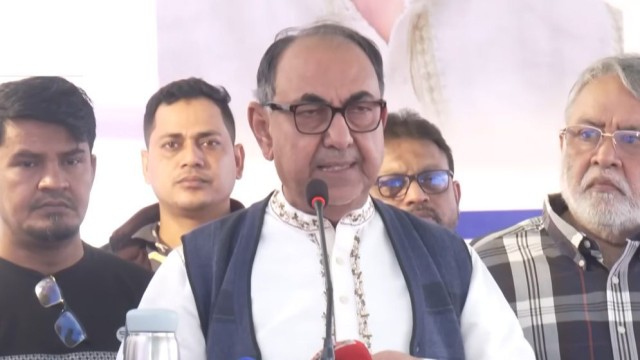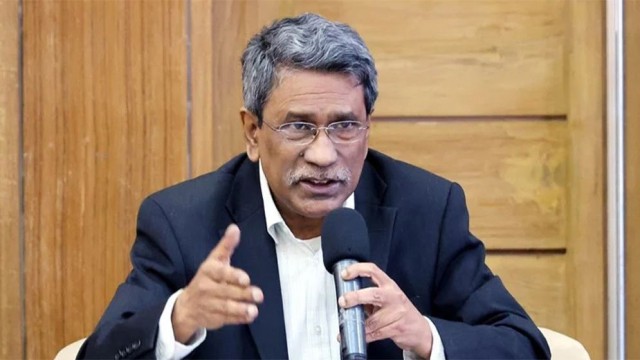Oct 19 V7N- At a focus group discussion organized by the Dhaka Chamber of Commerce & Industry (DCCI), speakers emphasized the need for coordination among agencies, structural reforms, and good management to ensure the sustainable growth of Small and Medium-sized Enterprises (SMEs) in Bangladesh. The event, focused on revising the SME Policy-2019, brought together industry leaders and policymakers to highlight the crucial role of SMEs in economic development.
DCCI President Ashraf Ahmed presented a keynote, stressing the importance of industrialization and service sector growth to complement the country's agro-based economy. He highlighted the potential of the CMSME sector to create substantial employment opportunities, especially for the half a million graduates entering the job market annually. Ahmed proposed several initiatives for SME growth, such as redefining SME definitions, easy access to financing, automation, skill development, and establishing a National Industrial Standard for export quality.
Md. Salim Ullah, Additional Secretary, Ministry of Industries, discussed the government's efforts to formulate an internationally aligned SME policy and sought stakeholder collaboration. He assured that the new policy would address previous shortcomings and reflect the needs of all stakeholders. Meanwhile, Md. Anwar Hossain, Vice Chairman of the Export Promotion Bureau, emphasized the need for automation in government services and the importance of strengthening backward linkages for export growth.
Speakers from various sectors, including Md. Mahbubur Rahman Palash of Dhaka Bank and Kyser Hamid of Bangladesh Finance Limited, pointed out challenges such as documentation burdens, financing model inefficiencies, and coordination gaps. They called for targeted measures such as SME innovation labs, easier access to credit, renewable energy incentives, and expanding SME Foundation operations to the upazila level.
In conclusion, the participants stressed that without adequate funding, coordination, and government support, the new SME policy would face the same challenges as its predecessor. They also highlighted the need for automation and easier loan processes to reduce corruption and streamline SME development.
END/BUS/RH/






























Comment: